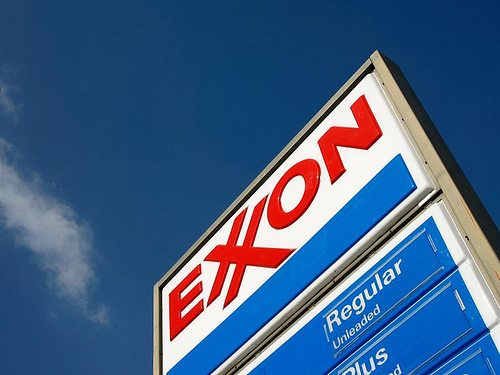

Energy
Emissions policies to price CO2 at $80 per tonne, estimates ExxonMobil
Oil giant ExxonMobil has estimated that the implied costs of CO2 emissions will reach $80 (£47) per metric tonne by 2040 in developed countries. The calculations follow calls from investors to disclose climate change risks.
The admission, published in the company’s Corporate Citizenship report, also notes that creating energy solutions that protect the environment whilst supporting economic growth is “one of the world’s greatest challenges”.
The inclusion of the findings in the report follows a landmark agreement after a shareholder resolution.
In March, ExxonMobil agreed to report on the financial risks posed by climate change in an effort to be more transparent for investors. Its subsequent report concluded that the world would still need and use fossil fuels for many years – despite the known risks to the climate.
Exxon said that policies to address greenhouse gas emission will tend to raise the cost of energy and related activities. It also noted that many countries are taking care in structuring the nature and pace of such initiatives in order to minimise impacts on local economies, industrial competiveness, energy security and people’s ability to pay higher costs.
The latest report states, “In most Organisation for Economic Co-operation and Development (OECD) nations, we assume an implied cost of CO2 emissions that will reach about $80 per metric tonne in 2040. OECD nations are likely to continue to lead the way in adopting these policies, with developing nations gradually following, led by China.”
The $80 figure is more than other oil firms have estimated, suggesting that the full impacts of climate change polices are yet unknown and could have unexpected consequences for shareholders within fossil fuel companies.
In the shareholder report published last month, ExxonMobil argued that all sources of energy, including fossil fuels, are necessary and that it intends to burn all its hydrocarbon reserves. A growing population, expanding economies and rising living standards would mean that “all viable energy sources” would be needed in the future, it added.
The report was released shortly after the UN warned that climate change will have devastating effects in the coming decades. Despite acknowledging climate risks, Exxon believes fossil fuel consumption will continue to grow. This led to a wealth management platform warning shareholders that their capital could be placed at risk.
Other oil firms have also taken this view. In a letter to shareholders Shell said it does not believe any of its proven fossil fuel reserves will become ‘stranded assets’ as a result of foreseeable future legislation around carbon reduction.
Photo: Minale Tattersfield via Flickr
Further reading:
Oil giants Shell, Total and Exxon report falling profits in Q3
ExxonMobil in landmark agreement to report climate risk after investor resolution
ExxonMobil’s Arctic ambitions threatened by sanction on Russia
Exxon told to clean up oil spill in Arkansas
ExxonMobil remains convinced that the world needs fossil fuels – despite climate risks


 Environment12 months ago
Environment12 months agoAre Polymer Banknotes: an Eco-Friendly Trend or a Groundswell?

 Features11 months ago
Features11 months agoEco-Friendly Cryptocurrencies: Sustainable Investment Choices

 Features12 months ago
Features12 months agoEco-Friendly Crypto Traders Must Find the Right Exchange

 Energy11 months ago
Energy11 months agoThe Growing Role of Solar Panels in Ireland’s Energy Future




























